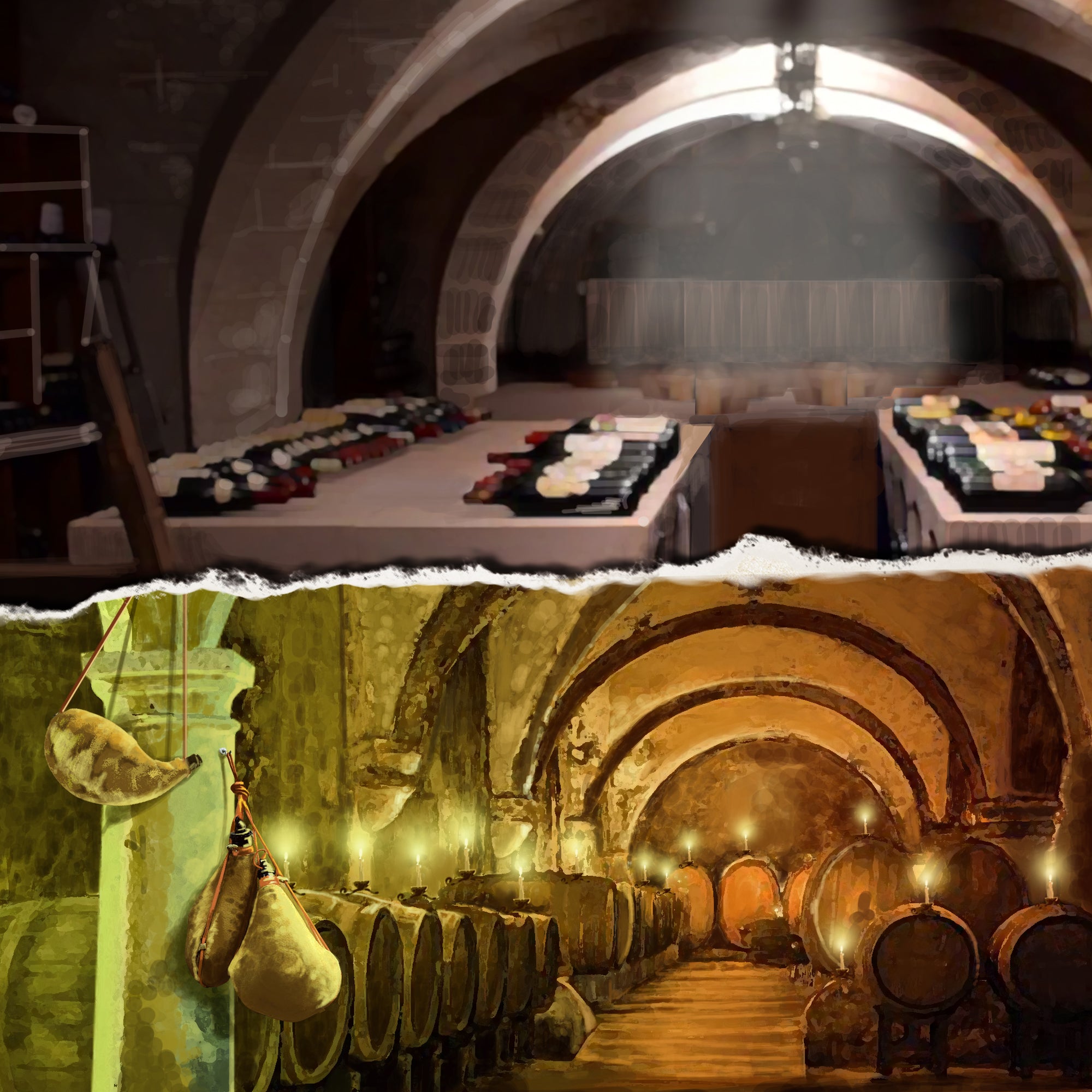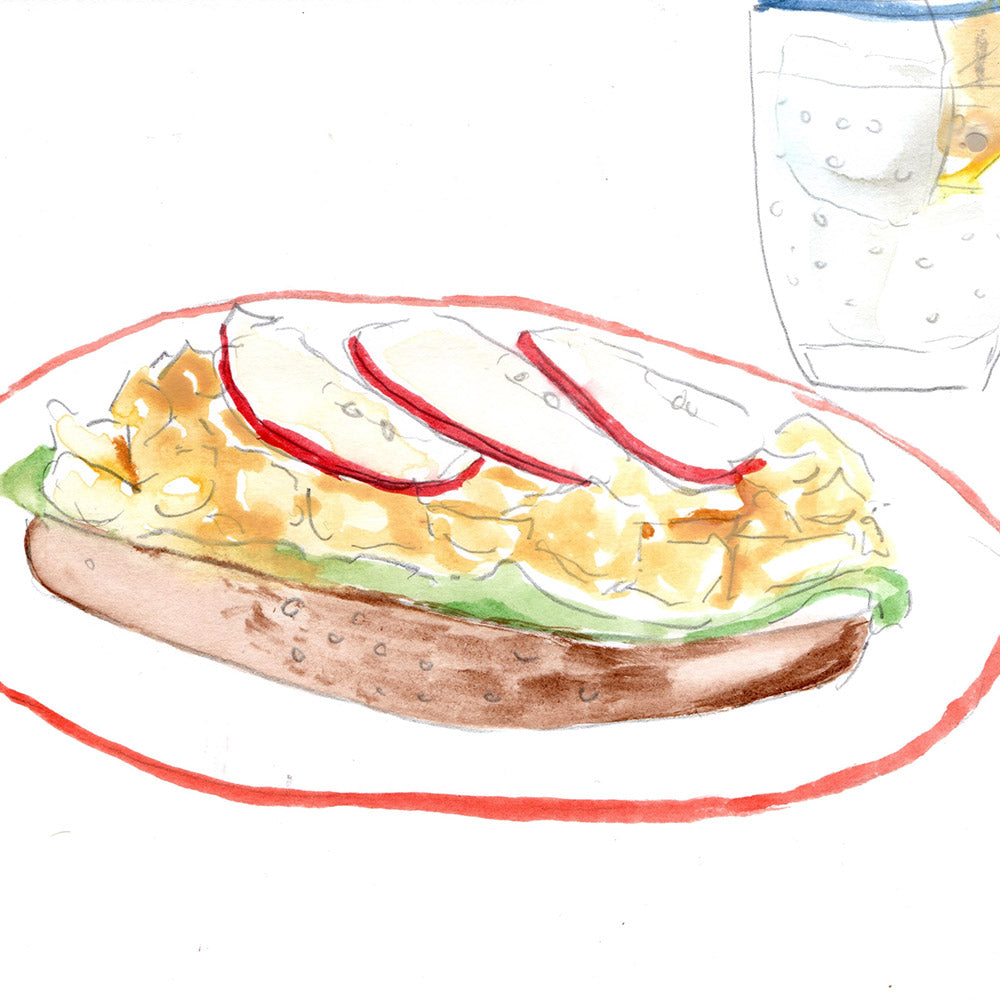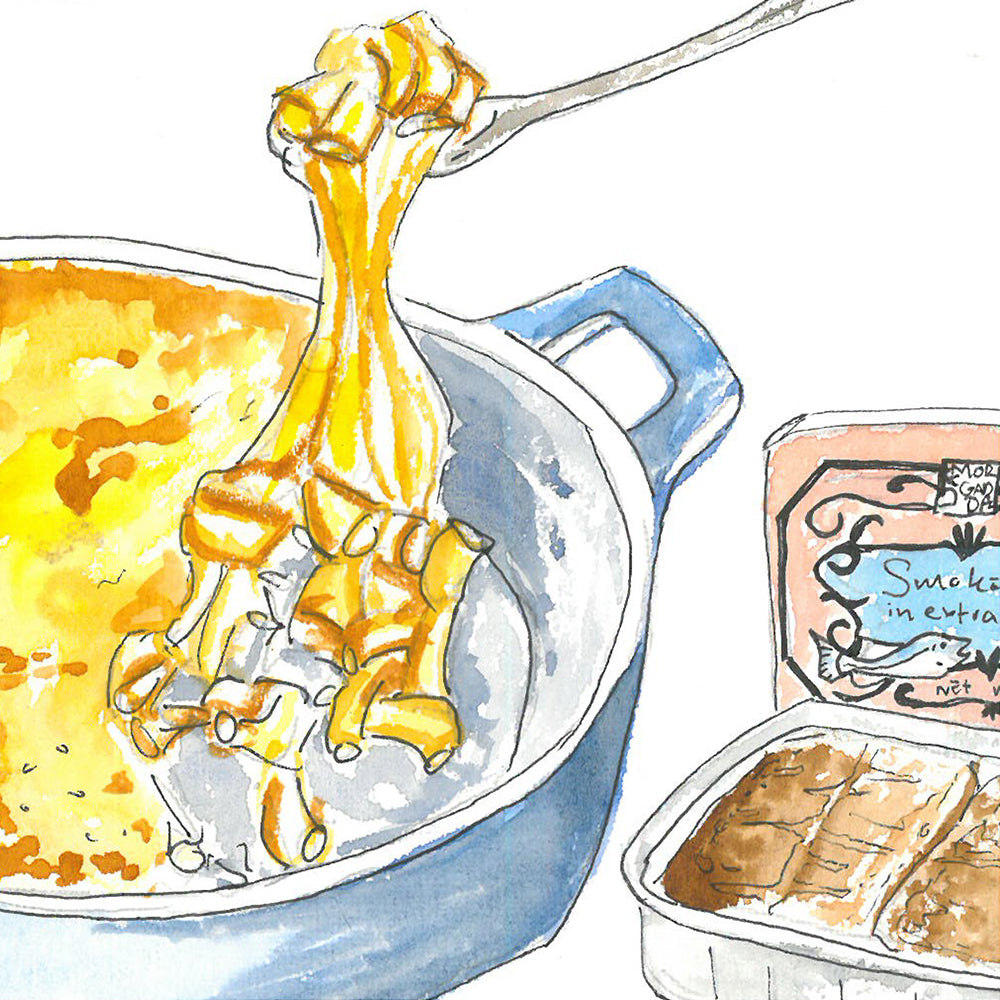France’s Wine Cellar
Beneath the presidential office in Paris is a wine cellar of, unsurprisingly, high repute. The Elysée Palace wine collection is the envy of any connoisseur or sommelier, boasting over 15000 bottles of French vintages of every variety, new and old. The cellar is protected by an armoured door and rotating watchmen that guard it day and night.
The cellar ceiling is that of a groin vault, expansive and shallow in a height that gives the effect of a bird’s beating wings. The grey concrete that constructs the room is illuminated by bright cream bulbs that bathe the walls in milky light. Lining those walls and gridding the floor are shelves built of unblemished bright wood that neatly cradle the glass bottles of French excellence.
In January 2016, the president’s personal sommelier hovered between these same stacks of red, rose, gold and white. Her tired hazel eyes scanned each bottle while her top teeth gently gnawed at her lower lip. The chosen wine for even the most flippant presidential meeting still spoke volumes in subtext, and the meeting she was now contemplating was far from ordinary. The nervous sommelier was named Virginie Routis, and the meeting in question was between François Hollande and Hassan Rouhani, the presidents of France and Iran, respectively. While the Iranian visit was one of formality rather than function, recent events hang a heavy pretence on the encounter.
In the middle of 2015, Iran and various world powers announced the Joint Comprehensive Plan of Action, more commonly known as the Iran Nuclear Deal. This political agreement would see Iran reduce its nuclear facilities and advancements in exchange for decreased economic sanctions. While the trajectory of this deal has been precarious – it became all but void when the USA pulled out in 2018 – every power involved spared no expense in accommodating Hassan Rouhani, making cultural compromises to appease any potential ire from the Iranian president or his government. Virginie Routis' role appeared trivial in this context, yet as the sommelier representing the president - and, by extension, France - she had to believe that it was the finer details that secured relationships. And for Routis, there was no finer detail than the wine she chose.
Believing her chosen vintage contributed to the two presidents' cordiality, she strove to strike a perfectly balanced taste for the two men. With anything in politics, the slightest error could turn trouble into calamity, and so Routis rigorously weighed France's finest wines against the palette, and indeed values, of the Iranian president.
In a confidential dossier, Hassan Rouhani's preferences and tastes were detailed by his presidential staff. Routis' impulse choice was a 1998 Chateau Lafite Rothschild. This vintage came from Bordeaux, the capital of French wine, and she believed it was an adequate representation of France given its geography and year; 1998 was the first time France had won the FIFA World Cup, a detail Rouhani might appreciate given his fervour for soccer. More importantly, the Lafite Rothschild bore flavours of red berries, truffle and cinnamon, a flavour profile that would likely compliment Rouhani's sensibilities, which tipped in favour of richness rather than sweetness.
With that said, the sommelier had to account for the meal Elysée Palace's chef, Guillaume Gomez, was to prepare - a salmon en papillote, French in construct but Persian in influence, featuring cardamom and turmeric and the sharp presence of freshly diced lemon-dashed parsley. With this in mind, she considered something lighter and floral to balance the layered dish, a delicate inclusion that cooperates rather than contends. While holding a golden bottle of 2007 Chateau Y'Quem, the armoured door at the far end of the cellar clunked and heaved its way open.
The sound of sharp heels clopped through the cellar toward Routis. Diligently, the sommelier carefully put the bottle of Y'Quem back in its place – wall ten, shelf six, slot four – before turning to greet her guest. Ms Gayet approached Routis with an affable smile, an expression all the more soothing when worn by someone with such gentle and elegant features. Julie Gayet, the president's partner and future wife, had visited the cellar with the president's permission in their relationship's early days, so unannounced visits were not unusual. They were even welcomed by Routis, whose company often exclusively consisted of bottled vintages whose stories were only interesting when uncorked.
Any impression of a casual visit faded when Gayet called the sommelier by her surname rather than Virginie, a name Gayet had grown accustomed to using.
‘Madame?’ Routis said. ‘Est-ce qu’il y a un problème?
‘Le président voudrait vous parler,’ Gayet answered.
The pair climbed out of the cellar and up the stairs where daylight greeted the palace interior. While walking, Gayet spoke jovially of insignificant things, her tone and demeanour absorbing the anxiety that steadily built in Routis. They parted at the opal door of the presidential office, with Gayet asking what wine would accompany the evening's dinner.
Absently, Routis answered 'Pichon Lalande. 2004.'
Gayet marvelled. 'Superb,' she said and departed.
Routis' pale knuckle rasped the door of the president's office. A bark welcomed her from the other side.
Wine in Two Contexts
On that day, President Hollande called the sommelier into his office to inform her that the meeting with Iranian President Hassan Rouhani would not occur. Naturally, Routis’ service was no longer needed, yet she was perplexed about the necessity of this meeting when a message would have sufficed. She soon discovered her council in a potential global incident was required.
That morning, Iran had a new demand: that due to Islamic law, there would be no alcohol at the meeting between the two states, in any capacity, neither poured nor offered nor visible. For all the allowances France, as hosts, would make for their visitors - from decorum to diet - a dinner without wine was a compromise France was unwilling to make. In short, Iran would not meet over wine, and France would not meet without it, making this grape-covered hill the proverbial one both nations chose to die on.
While it might be a thimble dramatic to suggest that these opposing stances jeopardised the Joint Comprehensive Plan of Action - and therefore stoked nuclear threat - many had regarded this decision as woefully irresponsible. Yet it broached the subject of what seemingly insignificant values are worth defending, politeness be damned. What contexts would make these values worth risking everything for? How much is posture, and how much is integrity? And is there much value in either when gambling with peace?
France et Vin
Few things are as culturally synonymous with France as wine, and vice versa. Francophone life is awash with wine consumption, and the viticulture world is all but dominated by French vintages and varietals. While it would be facetious to state that wine is the quintessential pillar of French culture, its ubiquity helped shape French history, from its institutional powers to its everyday people, and it might highlight how President Hollande's decision was perhaps not made by a man of power but by a man of France.
While the 'Ancient World' had been experimenting with wine in its earliest forms circa 6000 BC, there is evidence to suggest that Celts in Gaul – a region that was comprised of present-day France, Germany, Belgium, Luxembourg, Germany and Italy – had been tinkering with the fermentation of fruits at a similar time. French wine, in the 'Old World' sense, did not begin until the Roman Empire demanded more wine, resulting in vineyards sprouting all over France, a domain under Roman rule at the time. And so French viticulture began in the hands of peasants as a labour of duty rather than one of love.
Considering wine was predominantly transported in wooden barrels – a Roman innovation – shipping was perilous. Any treacherous road all but guaranteed collateral losses, so nautical or riverside cities and settlements – a good portion of France - became prosperous trading ports for their reliability in ferrying wines on smooth waters to the corners of France and beyond.
However, the viticulture world was turbulent with the forces that opposed it. Across multiple eras, moralists of the ‘old’ and ‘new’ world rose up against alcohol, brigands found riches by committing wine-related fraud, and harvest yields grew unreliable due to wars or widespread diseases that destroyed whole vineyards. Yet, France doubled down when other cultures shirked wine or diminished its importance.
Many French people relied on the wine industry for their livelihood, and up until then, the drinking culture surrounding wine was reasonably flexible and unrefined. While quality would vary with the social classes, wine was a drink that princes and paupers alike partook of in France, which bore the understanding that wine was as crucial as food and water. This was aided by the fact that, in many ways, wine was safer and easier to drink than water due to its alcohol level and wide availability. Rod Phillips detailed public opinion in his book 9000 Years of Wine:
The stereotype of the poor being poor due to substance abuse - at least in the context of wine - was practically non-existent because of this very consensus. Jean-Baptiste Moheau, a prolific political economist from France, wrote that wine was “an excellent beverage for the poor, not only because it is a food but also because it is a very good protection against disease.” He and many commentators encouraged all members of society to indulge in wine, resulting in a social tolerance for minor drunkenness that encouraged a more favourable stereotype referred to as ‘a French kind of drunk,’ a haze of wit, intelligence and charisma.
This rhetoric got bound up in French nationalism, arguing that wine was the spiritual product of France and its people. Phillips quotes separate accounts of French wine purists:
‘In our beautiful France, a country of wine, joy, openness, and happy temperament, let us not talk about abstinence. Your water, your Lenten drinks, your Ceylon tea, fig, or acorn coffee, your lemonade and camomile, be hanged. You are not only bad hygienists, but bad Frenchmen.’
And again, perhaps more profoundly, recounting the cultural appreciation of wine during the First World War - where French soldiers had drunk 1.6 billion gallons of red wine in 1918 - a French military newspaper, The Echo of the Trenches, quoted:
“No doubt our brilliant generals and heroic soldiers were the immortal artisans of victory. But would they have been without the pinard [the wine they drank] that kept them going to the end, that endowed them with spirit, courage, tenacity, and scorn for danger, and made them repeat with unbreakable conviction, ‘We will prevail.’
Phillips argued that this example was used as an ultimate argument against Wine’s opponents following the war. This rhetoric claimed, ‘Not only could wine save society from alcoholism and social decline, but it had saved the nation from defeat.’ [2017]
This was not the first time wine influenced the French political sphere. Indeed, a massive contributor to the French Revolution was the excessive taxation of wine and the vineyards that produced it. Wine was - and still is - a remarkably fluctuating market, more at the whim of supply and demand than many others. This was especially so during the eighteenth century when little insulation existed within the industry. Broadly speaking, vineyards smothered the French landscape and had countless livelihoods bound up in them. Vast harvests of varying quality from many vineyards saturated the market, making wine incredibly unprofitable. The opposite had the same results: high quality meant little economically when yields were low. And this volatility was very present in the decade leading up to the French Revolution, a crisis that was not aided by the aforementioned taxations that crippled the industry. Much of the revolution's force comprised stressed peasants who relied on wine for their livelihood.
With all this said, it would be very disingenuous to show a narrow set of facts, anecdotes and histories and suggest unequivocally that they are the cultural architecture of wine's reverence in France. It's a compelling narrative but a generalised one. Yet, this arrangement of details is worth considering compared to other nations. What commodities of different cultures have the same reverence and prevalence as wine in France but have also been hugely influential in its culture's growth? A few? Possibly, but the existence of others does not diminish the importance of one and might even illustrate that many of us, regardless of our ethnicities, might defend favoured commodities out of principle than anything else.
الکل و شراب
While France is considered to be a champion of 'Old World' wine – 'New World' being places outside of Europe and the Middle East – Iran is of the 'Ancient World,' indeed so ancient that it is among the first countries to specifically use grapes instead of any fermented fruit, as was the norm in BCE.
Wine was widespread in the cultures and governance of the early Persian empires. According to ancient historian Herodotus, a common practice saw people in power routinely deliberate issues and decisions over wine, even to the point of drunkenness, and come to inebriated conclusions regarding their policies. The following day, these officials would reconvene with sober minds, and if they still agreed with the political ideas made by their drunken selves, they would put them into action. [Daryaee, 2012.]
This excess, while often erroneously attributed to a stereotype of ancient Persia, was not uncommon, with even kings supposedly boasting their constitution against wine. A legend goes that King Darius the Great, the third king of kings known for administrative genius and benevolence towards his peoples, was buried in a regal tomb that bore the bawdy inscription:
'I was able to drink a great deal of wine and to bear it well.'
While this inscription is sadly a myth, and the referenced Daryaee dispels some of these excessive stereotypes of ancient Persia, the region's preference for wine, in particular, is known and accepted. And while Iran is obviously not the same as Persia, it's worth wondering: if wine was so influential in Iran's cultural roots, why is it now considered 'haram,' i.e. sinful and impure? As you might have guessed, the answer is alluded to in its language.
Iran might have one of the most fascinating cultural progressions in modern history. The Iranian Revolution was not only a monumental paradigm shift for this sizeable Middle Eastern nation but also a catalyst of change that gradually reverberated throughout the world. Many nuances contributed to this complex revolution.
Firstly, there was the 1953 Iranian coup d’etat, in which Iran’s prime minister was overthrown to strengthen the rule of Iran’s monarch known as the Shah, a political move orchestrated by the United States. The Shah regime gradually came under criticism for its Imperial origin and its growing oppressiveness, frivolity and corruption, as well as its over-involvement with Western powers. This latter point had many believing that Iranian culture was diminishing under the influence of the US. Indeed, many black-and-white photos of bare-skinned and fun-loving Iranian revellers are difficult to discern from American counterparts of the same era; this comparison would not fit today. Iran also faced a swift and stinging recession in the late 70s that affected every industry and household.
These three reasons pervaded every aspect of day-to-day life in Iran. Violent protests and strikes began to sprout between 1978 and 1979 until they eventually brought the nation to a standstill. The Shah fled Iran, and after a national referendum, the public voted to become an Islamic republic, a whiplash change from a highly liberal post-secular culture to an ultra-conservative religious one that wholeheartedly pushed back against the West.
Admittedly, this broad overview does a disservice to the monumental change Iran experienced. The surfaced tellings of a single few events might imply that Iranians went from socialist wine drinkers to steely devotees of Islam overnight. This obviously wasn’t the case. Without diving into the morality of societal frameworks, secular or otherwise, it is necessary to mention that countless people suffered. There were widespread illegal imprisonments, tortures, and killings and should one’s philosophy diverge even slightly from Islamic fundamentalist laws, everything held dear was threatened. Conform or risk it all, this was the choice ultimately left to many citizens of Iran, and it provides crucial context as to why drinking wine, as harmless as it seems, might not only be considered sinful but dangerous.
That Vine-Covered Hill
At this point, I would like to say that my bias is that of someone considerably Irish, liberal, and more or less agnostic. This cultural context created in me someone who unquestioningly lives a post-secular life, that inherently believes rationality prevails, and is naturally bewildered and saddened when it doesn’t, when belief reigns over compassion and dictates culture to the point of bloodshed, not to mention restricting mundane joys like a glass of wine.
But similarly, context informs everything, and it makes me significantly less eager to judge the Iranian decision to not even sit with wine on the table, not only because of the religious prejudice against the beverage but also the cultural volatility that their modern government was founded on. I also understand wine has weight in France and that everyone, from the individual to the societal, is entitled to the principles they will not compromise on, even if they seem trivial. Adam Gopnik of The New Yorker wrote in his coverage of the event:
We do owe people of fundamentally different world views respect for their difference, and insisting that they have to bend to ours in all instances is uncivilized. But, while recognizing our own irrationalities, we don’t owe them a blind bending to theirs. [2016]


